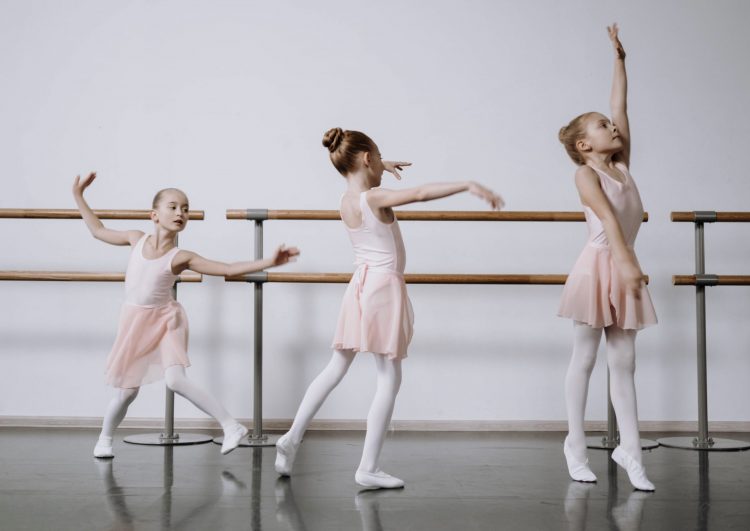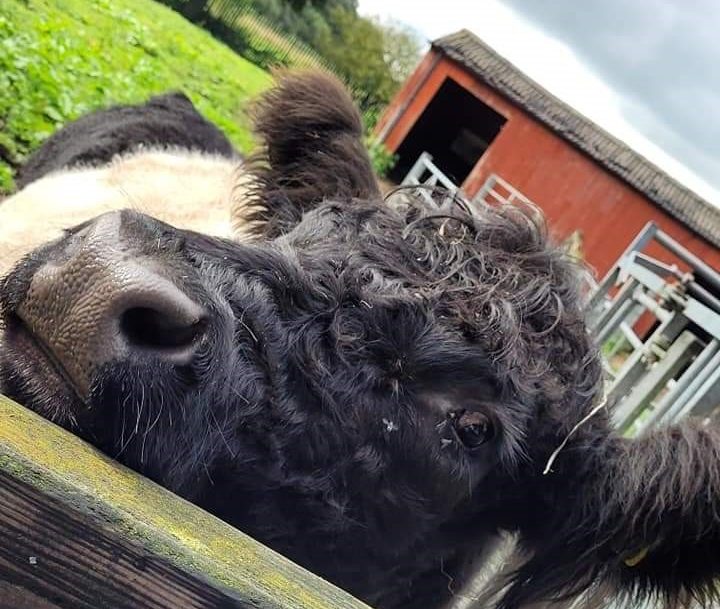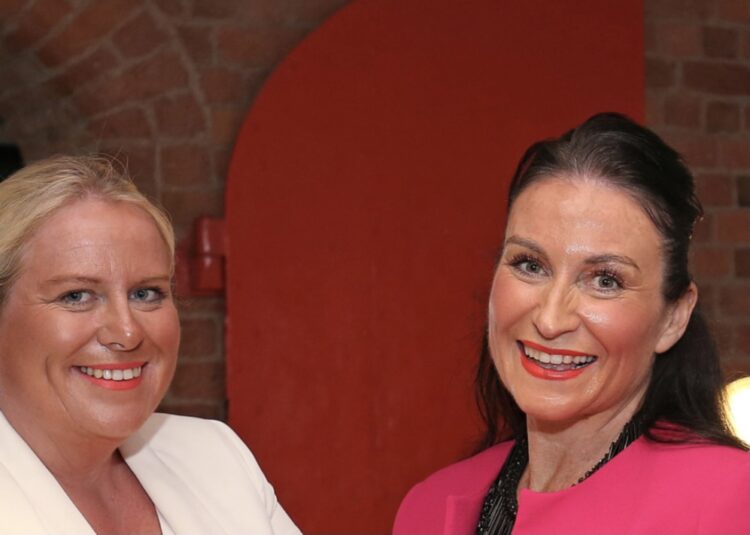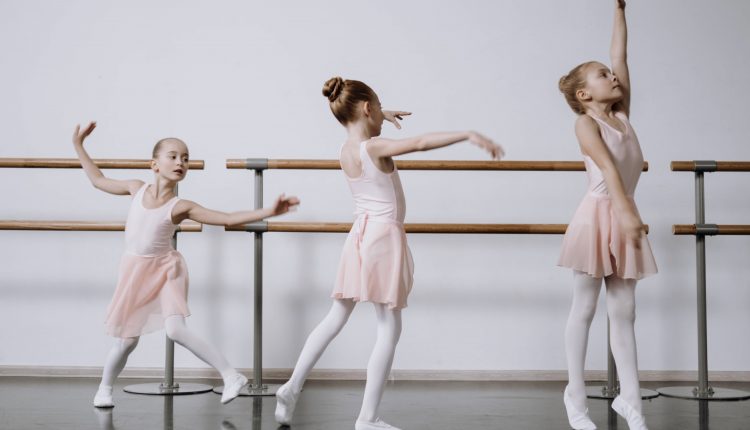Knowsley businesses tell their pandemic stories
Small businesses across Liverpool city region have had to innovate to survive during the pandemic – three firms in Knowsley tell their stories. Tony McDonough reports

Small businesses across the UK have had to show remarkable resilience and adaptability during the COVID pandemic and those in Knowsley have been no exception.
In the space of a few weeks in early 2020 the world was turned upside-down. Social distancing and mask-wearing suddenly became the norm and all but non-essential businesses either had to stop trading or think quickly on their feet.
A trio of businesses in Knowsley – The Dance Shop, Acorn Farm and Aries Marquees – all found themselves in the eye of the storm and had to quickly pivot to ensure their businesses survived. Almost two years on they tell us their stories…
The Dance Shop
In January 2020 The Dance Shop relocated from Prescot Shopping Centre, where it first opened in 2015, to Eccleston Street in the town. It was the perfect location for the business, which sells a range of dance and gymnastics clothes and equipment, to build on what had been a successful first few years.
However, just weeks later, founder Cathryn O’Grady was forced to close the doors of the shop. This happened even before the full lockdown was imposed because the dance schools that the shop depended on for much of its business had already started to shut down as the virus spread.
“I was in the shop around mid-March and I got a phone call to say our own dance school was having to close down – we were due to hold classes in the next hour,” said Cathryn. “We thought it would last about four weeks and I remember thinking at the time even four weeks would be devastating.”
Cathryn is herself no stranger to multi-tasking and adapting to change. In her teenage years she had been a dancer, performing in the UK and overseas. When she hung up her ballet shoes she began teaching at the Jan Williams Theatre School, then based in Huyton.
Jan had founded the school in 1986 and generations of young people have passed through its doors since. Jan died of cancer in 2000 and Cathryn was determined to keep the business going and took it on herself. At the same time she was also forging a successful career as a marketing and events executive at the Liverpool Daily Post & Echo.
She left the newspaper in 2008 to run the theatre and dance school full time. A few years later, on impulse, she entered a competition run by investment charity, One Ark, part of the Knowsley-based First Ark Group, to ‘Win a Shop’, rent free, for a year.
READ MORE: Prescot’s Shakespeare Theatre will offer an ‘inspiring example’
“I had to put together a business plan and a marketing plan,” explained Cathryn. “So then I was shortlisted and was interviewed by a panel. Then all the shortlisted candidates had to run a stall at a Christmas market in Prescot.”
She was picked as the winner and, in April 2015, The Dance Shop opened its doors for the first time offering a range of clothing, footwear, gifts and accessories for dance and gymnastics from toddler through to professional and “everything in between”.
The move to Eccleston Street in January 2020, with the dance school to be located upstairs, was meant to take the shop, which employed Cathryn and two other people, onto the next level. It would be, as Cathryn called it, “our forever home”. She added: “It allowed us to be more flexible and open for longer hours.
“During lockdown many of the dance schools reacted quite quickly. A lot of them went to Zoom straight away. So it meant there was a small demand for stuff – but nowhere near the same demand. A lot of the kids were doing the classes on carpet so didn’t need things such as tap shoes.
“We had to be really creative and quickly change our model. We took orders online and over the phone and then delivered the products to people’s homes. It was a tough time. Obviously things such as furlough and grants did help but you need to make profits to keep investing in the business.”
In summer 2021 and into the autumn there were signs of getting back to normal but the emergence of the omicron variant has meant more uncertainty for businesses such as Cathryn’s. She said: “It felt great in September last year but that uncertainty persists as you don’t really know if we will have another lockdown.
“When we opened up again we did see a big pick-up in business people because people wanted to get new stuff again. And that is good but you have to remember that for us and many other businesses, we have two years to make up for.”
In terms of the dance school, Cathryn says the disruption has had an impact on many of the young people. She explained: “Some kids were great with the Zoom, they took to it straight away. But kids learn in different ways so when they have come back to the classes you have some at different levels. You have to help them rebuild their confidence.
“I am optimistic for the shop now and I don’t think we will return to lockdown. But I think some people’s buying habits have changed during the pandemic so it is not just a case of returning to the way things were at the start of 2020. You have to keep adapting and be prepared to change the way you trade.”
Acorn Farm
When Acorn Farm reopened to the public after the end of the Covid lockdown on 19th July 2021, manager Fiona Smith and her team were not quite sure what to expect.
Similar to many visitor attractions, the business had been hit hard by the pandemic and there was a question as to how quickly people would come back. What happened next exceeded all of their expectations.
From July 19 until the end of November a record 46,052 visitors flocked to the farm. Visitor number for August 2021 were 67% up on those for August 2019 and those for November 72% up .
“People came flooding back and we had the busiest summer holiday period ever in our 34-year history” said Fiona. People were so delighted that we were back open and we received many lovely, heartfelt comments about how much we had been missed.

“We made a conscious decision not to increase our prices on re opening as we were aware that many people had suffered financial hardship during the pandemic with furlough and job losses. However unfortunately due to ever increasing costs we will have to increase our prices in the spring but our admission fee will still only be £3.50 for adults and £2.50 for children.
“That out pouring of affection for the farm was particularly rewarding for the team. They had initially planned to open on 21st June 2021 but then the Government’s road plan stalled.
“As the farm supports a number of people with disabilities who are extremely vulnerable to the virus, they didn’t feel it would be safe for the farm to open until all Covid restrictions had been lifted. The postponement of the opening to visitors was a huge disappointment to all of the team at the farm.”
After being forced to close at the start of lockdown in March 2020, the day service for people with disabilities was able to reopen in July 2020, one of the first to re-open in Merseyside.
Fiona said there was a lot of work to do in terms of putting in extra measures to make the farm COVID-secure. But the farm knew that was their priority. So many of the individuals who had been coming to the farm regularly, each week, for years to help care for the animals and keep the farm running were missing the place dreadfully.
Some people rang up almost every day to ask after their favourite animal and beg the staff to let them come back. It was heartbreaking. So it was a joyous day when they were able to welcome everyone back.
Acorn Farm was established 34 years ago as a facility for people with disabilities to learn practical skills, like animal care, horticulture and maintenance. The farm’s first livestock were a rabbit and 2 gerbils.
Since then Acorn Farm has grown into a popular Merseyside visitor attraction, welcoming more than 80,000 visitors per year. It is open seven days per week. It’s animals now include sheep, cows, goats, pigs, horses, chickens, ducks, rabbits, guinea pigs and even meerkats.
It is a working farm so often has baby animals including lambs, goat kids, piglets and chicks to see. During weekends and school holidays the 33 full and part-time staff run small animal petting sessions and horse rides. There is also a farm shop selling fresh produce, a café and a garden centre selling plants.
Fiona, like many people, hadn’t expected Covid to be the once in a generation crisis that it turned out to be and the farm had to react quickly to make sure that it would get through the turbulent period with the business still intact.
However, thanks to a mild autumn and what Fiona describes as a “glorious” September people kept coming through the gates in large numbers. Acorn Farm traditionally makes a surplus in the spring and summer which helps keep it viable all year round. Unfortunately, following government guidelines in December mask wearing had to be re-introduced
Fiona said “I am optimistic for the farm this year. You have to stay optimistic about the future and we have an exciting one ahead of us. Our farm site is being reconfigured by our landlord KMBC. This has given us the opportunity to plan ahead for the next 99 years.
“We have a dream of a new farm building as the existing one, built 35 years ago is now no longer fit for purpose with ever increasing visitor numbers. So we are about to embark on a big fundraising drive to help us to realise this dream which will enable us to continue to provide an affordable and fun day out for people from the local community.
“We have also recently recruited a new education and events coordinator which means that in the spring we should hopefully be able to go back into schools and other community groups again and have them visit us.
“It will be great to be back doing what we love best –bringing happiness. As one visitor summed it up. Acorn Farm is by far our most treasured attraction in Kirkby. The ethos of inclusion is such a positive aspect of our community.”
Aries Marquees
As a provider of a range of marquees for weddings, parties and corporate events, Aries Marquees was hit as hard as anyone when the pandemic struck in March 2020.
“Everything just stopped and, for a short time, we didn’t know what we were going to do,” said Gaynor Purcell who took over the 33-year-old Knowsley-based business in 2008 with her sister Lisa, establishing it as a market leader across the North West.
However, while their usual leisure market dried up overnight, the firm was able to pivot quickly when corporates began to realise they would need to provide extra space for staff for accommodate social distancing, a whole new concept the world was having to get its head around.
Salvation came initially in the form of global vaccine maker Seqirus which operates a large factory in Speke in south Liverpool. They needed to set up canteen facilities for their staff and one of Aries marquees was perfect for the job.
Gaynor explained: “The Government announced that it was safer to do things outdoors and so we started to get requests from companies that needed to find a way of operating as safely as possible.”
Enquires came in from other businesses who needed to provide that extra space. They included Liverpool Women’s Hospital, Southport Hospital and United Utilities in Warrington. The emergence of pop-up COVID testing units also became a source of work for Aries and they worked at a number of locations including Liverpool Football Club.

Fast forward to spring and summer 2021 and Aries’ traditional event business is also starting to motor again. Gaynor added: “People had been through multiple lockdowns and they wanted their lives to get back to some form of normality.
“They wanted to have their weddings and parties and celebrations. So work was picking up again. And we were still doing that corporate work as well with organisations still needing the outside facilities. We are still working for the NHS at the Women’s Hospital and for United Utilities.”
But in December, the situation took another turn with the emergence of the omicron variant. Prime Minister Boris Johnson stopped short of bringing back mandated restrictions but did implement the so-called Plan B which included the return of face masks in shops and advice to avoid crowded situations.
“Once again, people became more careful and business did slow down again,” said Gaynor. “We are normally busy in December with events such as Christmas parties but there was a sudden reluctance among our usual customer base.
“I think we are cautiously optimistic for 2022. At Christmas people start talking about their plans for the year but it is normally a couple of weeks into January before that starts to turn into solid enquires for us, although we have had a few already. Hopefully once we get past this period business will start to pick up again.”

